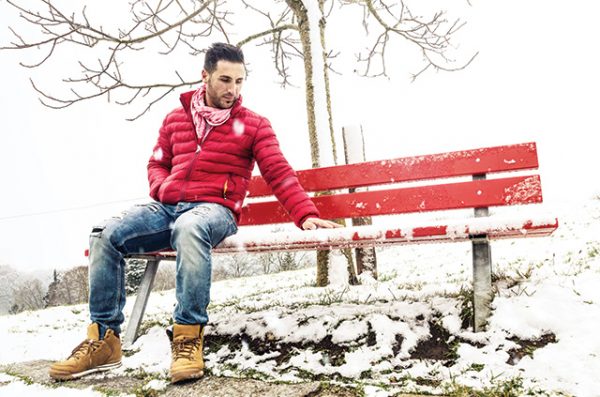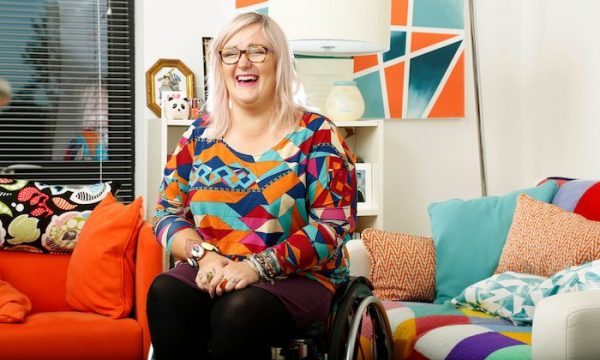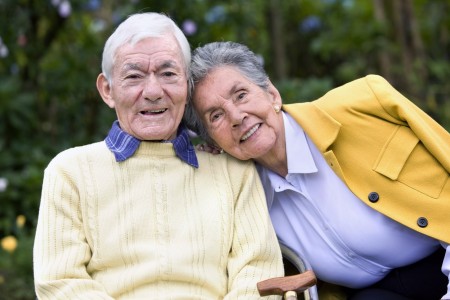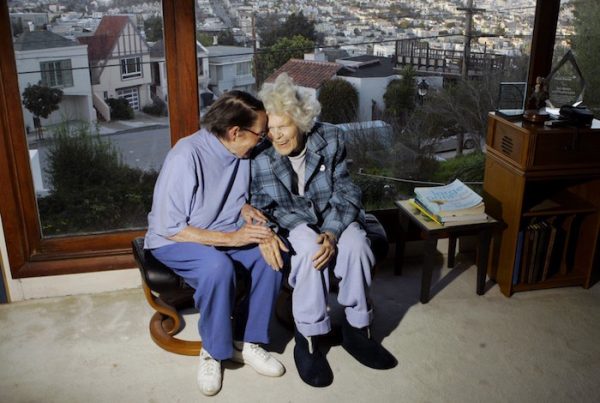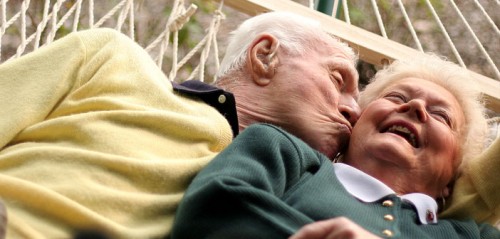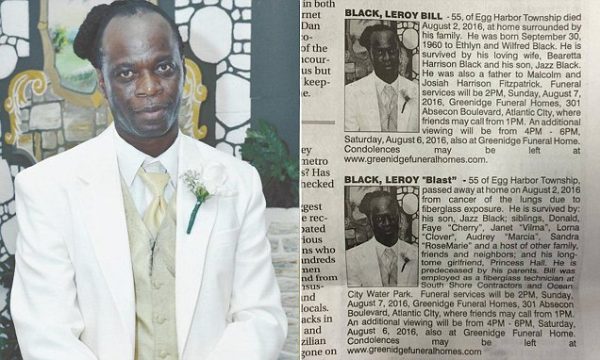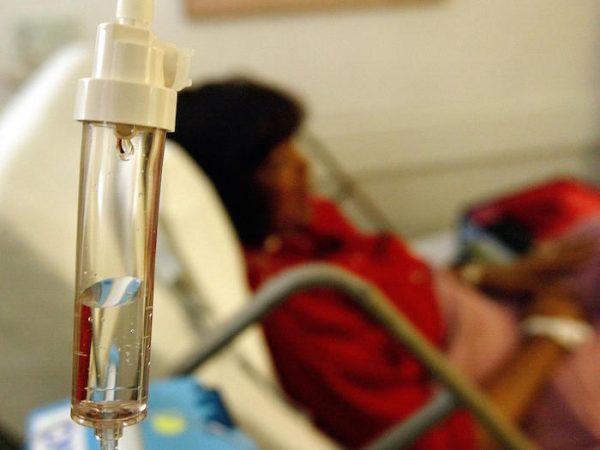By Tony Del Percio
[I]t does not matter if you’re straight, gay, lesbian, bisexual, or transgender: we are all human beings who have the capability to love and be loved. From the moment we are born, we develop bonds and attachments to people, places, and even things. When that bond is separated and detached, especially because of death, we experience grief and loss.
Grief is an intense emotional and psychological suffering related to any type of loss we may experience. Depending on the bond and the relationship, grief can last a few days or several months. Yet for those who have experienced a significant death, grief can last up to two years. Grief does not just involve the emotional but also the physical. The feelings we experience are neither right nor wrong; they just are.
It can be difficult for us in the GLBT community when a partner/spouse dies or even when we go through a serious break up after being together for a long period. Still in our society there are those who will never accept same-sex relationships or marriage or the fact that two people of the same sex can love just as much as a heterosexual couple. I can remember running a support group for men in San Diego whose partners had died, and some of these men had been in long-term relationships and yet had no legal rights over their partners at the time of death. The family of one of the deceased came and took the body and never recognized the two of them as a couple. The surviving partner never had a chance to say goodbye because in many states the next of kin has the legal rights. That is why it is so very important that couples in the GLBT community have the legal papers that will honor the wishes of the couple before a serious illness or death, because you may not have any rights. Luckily, our society is changing and becoming more open, accepting, and acknowledging of same-sex relationships. Love is love.
It also may be difficult for a partner to talk about their loss with family, friends, and coworkers if they are not out. The lack of support leaves those to grieve in what feels like solitary confinement, which could lead to a greater isolation and a deeper depression.
When dealing with a death or a serious break up, we will experience a wide range of emotions and physical reactions. We may experience shock, denial, depression, anger, guilt, abandonment, insomnia, lack of energy, memory problems, confusion, concentration difficulties, forgetfulness, social withdrawal, chest pains, panic attacks, and headaches as well as other symptoms. These are normal reactions. For some, the emotional pain may become so intense that they will find ways to mask their feelings with increased alcohol or drug use or by taking various unhealthy risks because they may feel they have nothing else to live for. Men, in particular, have a difficult time doing their grief work because of what they have been taught over the years: “be strong,” “it’s finished so move on,” “men don’t cry,” or “pull yourself up by the bootstraps.” Over the years, the lack of understanding feelings, expressing them, and dealing with various losses such as coming to terms with sexuality, divorce, abuse, poor self-esteem as well as other losses has led to substance abuse, abusive relationships and suicide. Men must learn to find healthy ways to express feelings and not be embarrassed about them. Some members of the GLBT community may not have the love and support they need in coping and adjusting to death.
For many, the funeral is the easy part. It is the weeks and months after it when reality sets in and we become more aware of the void in our lives. We know in our heads that our loved ones have died, yet our hearts do not want to believe or accept it. As you begin the mourning process, you need to understand that not only are you experiencing grief, but you are also going through a period of stress and adjustment as you begin to make changes in your life now as a single person.
It is important as you begin the mourning process to be open and honest about what has happened and to accept the fact that your loved one has died. Once you can accept and move from your head to your heart, you can begin to heal. As you move through the process, you will feel like you’re on an out-of-control roller coaster ride, especially around birthdays, holidays, and anniversaries. For many, the sixth month often becomes more difficult as reality really sets in. We will experience triggers of sights, smells, sounds — especially music — that will turn a good moment to a bad moment in a second. Depending on the type of death, there may be more heightened feelings such as anger and guilt. It is okay to be angry since we may feel cheated or that we did not have enough time with our loved ones. Guilt is where we say, “If only…” “could have…” “should have…” It is more important that we come to an understanding of our guilt, whether it be real or imaginary. In sudden deaths, there may be unfinished business in the relationship or intense guilt that we may need to get past to truly accept reality. We all do the best we can with what we know at the time.
At some point, it is Important to begin letting go to heal and find a new purpose. Our grief is not about the person dying as it is more about the loss of the relationship: someone to hold, someone to talk and share each day with, someone to cuddle and hold hands with. You will grieve the loss of dreams and a future with your love. You might also experience the loss of identity, especially if you were in a long-term relationship. In other words, “who am I?“ becomes very unclear. It is crucial that we not rush or deny our grief. For some of us, we may find that older unresolved losses from our past come to the forefront.
The following are some helpful hints for dealing with loss: recognize it, you are not alone, give yourself time to heal, keep decision-making to a minimum, beware of being on the rebound, don’t rush into a new relationship, set goals, keep a journal, drink plenty of water and eat well. And know that you will survive.
As you grieve, it is important if you have children to allow them to be open and honest about their feelings and take time to share stories and memories. If the kids are younger, put together a memory box with personal items and photos. Depending on the age of a child, be as open and honest about the death, yet do not overwhelm him or her. Plus, never tell a child something that may need to be undone later. In other words, never lie to a child about the cause of death. Allow the child to participate fully in the funeral, no matter what age he or she may be.
As you grieve the death of your loved one, it may be important to find a support group of others who are experiencing the same things. This may be a difficult task since many of the groups out there are mostly made up of older individuals who have been married for many years. These people may have trouble understanding a same-sex relationship and may not be respectful of your mourning. Otherwise, you might find that you are comfortable sharing your grievances with close friends and family.
If you are reading this and know someone who has experienced the death of a partner/spouse, here are a few tips on how you can help that person cope and adjust: give them your physical presence, just be there. Do rather than ask. Most people who are grieving do not like to ask for help. Keep the subject on them, this is not a time about you. Do not rush the person through their grief or try to find them a new relationship. Never minimize a person’s loss. Be with them for the long haul because for some this may be a long process.
Complete Article HERE!

